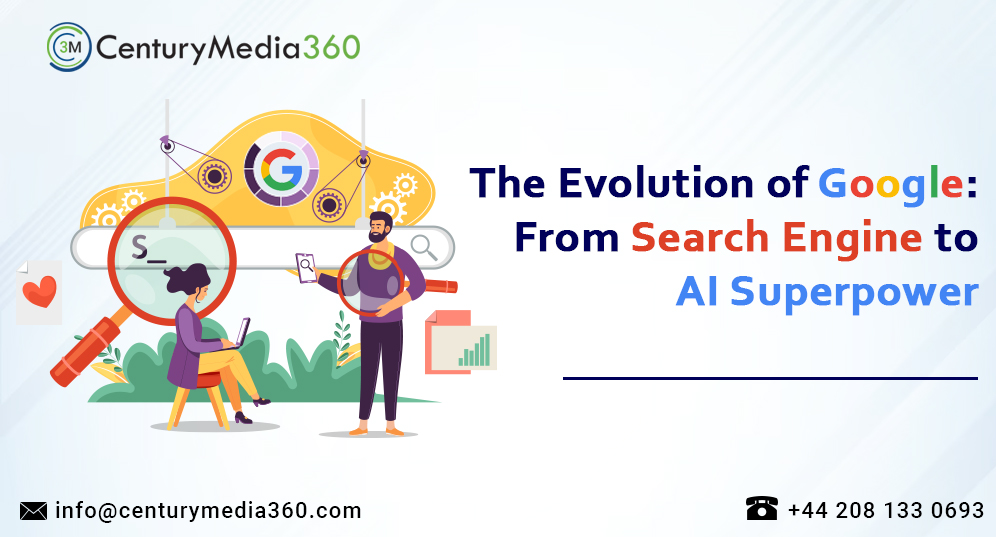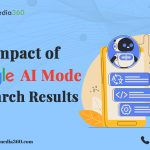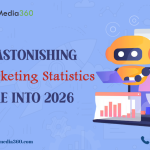The Evolution of Google: From Search Engine to AI Superpower

Google was introduced to the world on the 4th of September, 1998. Since then, the platform has evolved impressively. A subsidiary of the parent company Alphabet transformed into Google AI in the year 2018 to dissect the working capabilities of research only. Google AI is a replica of human progress from the primitive to the advanced. The goal of Google AI is to work on research projects promoting the AI features that in turn contribute to the advancement of Google products like Google Maps, Google Search, etc. Initially, the prioritized-only search quotient somehow failed to understand and cater to the customized preferences of the individual. The derivation is the need of the hour because they are failing to answer dynamic and versatile user queries. In our article, we are highlighting the key factors that contributed towards the evolution of Google from search engines to AI powerhouse:
Transformation
Google’s decision to transform to Google AI was mainly to improve and polish the search interface. The idea to project machine learning algorithms in search engines took shape in the middle of 2000 to understand the intricate web of human necessities and provide answers that match their search quotient. The search engines come off competitive thereby satisfying the varied queries of the users with the help of AI.
Google Brain
Another significant feature of Google AI is the Google Brain discovered by Jeff Dean, and Greg Corrado in 2011. The goal is to channel deep machine learning algorithms in the fields of AI research thereby ushering versatility to the projects. The team has contributed towards the development of deep neural networks, the only interconnected nodes that detangle and decode the perplexity of the human brain. The idea received attention for its capability to perform functions resonating with normal human brain processing. Another remarkable achievement of the team is Tensorflow, an open-source machine-learning library used by industries to innovate and deploy machine-learning models.
The Idea of the BERT Breakthrough
After marking remarkable achievements in image recognition, Google AI is working relentlessly to create a difference in the language processing field. A transformation in the natural language comprehension pattern created an overwhelming response, noticeably with the introduction of BERT. The idea is to convert complex language forms into understandable texts and interpret natural language processing tasks. To ensure personalized responses BERT segregated and categorized the differences in the language forms.
Medical Innovation
The canvas of Google AI has touched and benefited every sector of the industry through innovation and creativity. Google AI prowess is measured through the machines performing the diagnosing tasks from the images and accordingly prescribing the medicines.
Quantum Computing
Google AI claims to have mastered quantum computing in 2019 with the introduction of Sycamore. The experiments of quantum supremacy are challenging the classical computer abilities thereby proving to push the future computational boundaries at a staggering scale.
Conclusion
Embarking as a search engine to transforming to Google AI also known as Google Research, the journey has been sumptuous. The metamorphosis has titled Google as a versatile search engine culminating innovation and science through creativity.






